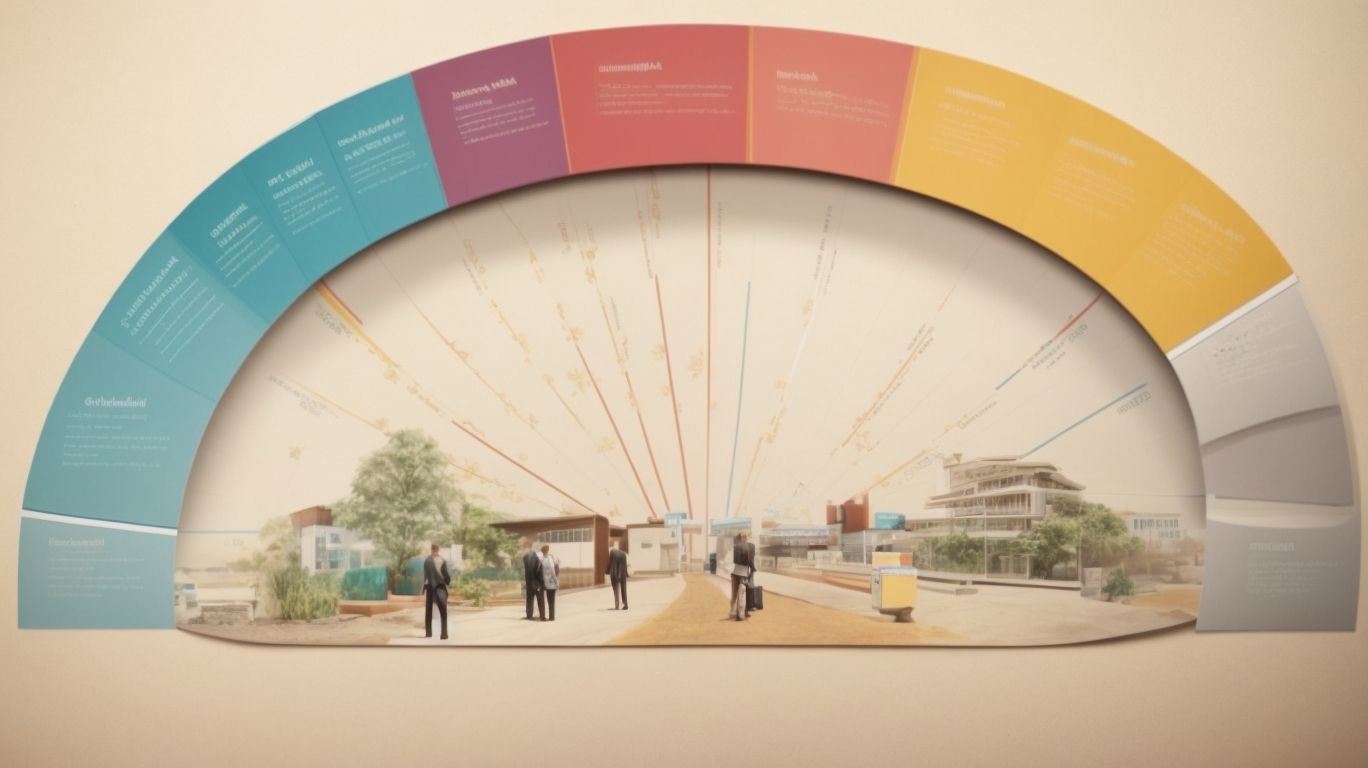Are you considering pursuing a 4-year psychology degree but unsure of what it entails or the career options available to you? In this article, we will explore the core courses typically included in a psychology degree program, such as Introduction to Psychology, Statistics for Psychology, and Biological Psychology.
We will discuss the various career paths you can pursue with a psychology degree, including becoming a clinical psychologist, school psychologist, or counseling psychologist. Join us as we delve into the world of opportunities that await you with a 4-year psychology degree.
2. Some potential careers for those with a 4-year psychology degree include clinical psychologist, school psychologist, industrial-organizational psychologist, forensic psychologist, and counseling psychologist.
3. Graduates with a 4-year psychology degree can find job opportunities in mental health facilities, private practice, educational institutions, government agencies, and non-profit organizations.
Contents
- 1 What Is a 4-Year Psychology Degree?
- 2 What Are the Core Courses in a 4-Year Psychology Degree?
- 3 What Are the Career Options for a 4-Year Psychology Degree?
- 4 What Are the Job Opportunities for a 4-Year Psychology Degree?
- 5 Frequently Asked Questions
- 5.1 What can I do with a 4-year psychology degree?
- 5.2 What are some career options for individuals with a 4-year psychology degree?
- 5.3 Can I work in the mental health field with a 4-year psychology degree?
- 5.4 What skills can I develop through a 4-year psychology degree?
- 5.5 Can I pursue a graduate degree with a 4-year psychology degree?
- 5.6 Are there opportunities for research with a 4-year psychology degree?
What Is a 4-Year Psychology Degree?
A 4-year psychology degree provides students with a comprehensive understanding of human behavior, mental health, and social services, leading to various career opportunities in the field of psychology.
Throughout the program, students delve into subjects such as abnormal psychology, research methods, cognitive processes, and developmental psychology, equipping them with a solid foundation in the field. The curriculum often includes practical training through internships or lab work, allowing students to apply theoretical knowledge in real-world settings.
Upon graduation, individuals with a psychology degree can pursue diverse career paths including clinical psychology, counseling, human resources, social work, and research positions. The versatility of a psychology degree opens doors to work in healthcare institutions, schools, corporations, and non-profit organizations.
What Are the Core Courses in a 4-Year Psychology Degree?
A 4-year psychology degree includes core courses such as Introduction to Psychology, Statistics for Psychology, Research Methods in Psychology, Biological Psychology, Social Psychology, Developmental Psychology, and Abnormal Psychology.
Introduction to Psychology provides an overview of the fundamental theories and concepts in psychology, laying the groundwork for further exploration into the human mind and behavior.
Statistics for Psychology equips students with the necessary tools to analyze psychological data, enhancing their ability to draw reliable conclusions and make informed decisions based on empirical evidence.
Research Methods in Psychology focuses on teaching students how to design and conduct research studies, emphasizing the importance of ethical practices in psychological research.
Biological Psychology explores the intricate relationship between the brain, behavior, and mental processes, looking into the physiological basis of human cognition and emotions.
Social Psychology delves into the impact of social interactions on individual behavior, attitudes, and beliefs, shedding light on how group dynamics and societal influences shape human psychology.
Developmental Psychology examines the cognitive, emotional, and social changes that occur across the lifespan, offering insights into the factors that influence human growth and maturation.
Abnormal Psychology explores psychological disorders, their causes, symptoms, and treatment approaches, enhancing students’ understanding of mental health issues and strategies for intervention and support.
Introduction to Psychology
Introduction to Psychology is a foundational course that explores the basic principles of human behavior and the key concepts in psychological research and analysis.
Studying psychology not only provides a deeper understanding of why individuals think, feel, and behave the way they do but also equips students with valuable skills such as critical thinking, problem-solving, and effective communication. Through this course, individuals delve into the intricacies of various psychological theories, including behavioral, cognitive, and humanistic perspectives. They also learn about research methods, such as experiments, surveys, and case studies, to evaluate theories and understand human behavior more objectively.
Statistics for Psychology
Statistics for Psychology equips students with the analytical tools and research skills necessary to interpret data, conduct experiments, and analyze trends within the field of psychology.
The course delves into various statistical methods such as correlation, regression analysis, and inferential statistics, which are essential for drawing meaningful conclusions from psychological data.
Students learn to apply these techniques to real-world scenarios, enabling them to evaluate empirical evidence and make informed decisions.
Understanding probability theory and hypothesis testing is crucial in psychological research to determine the significance of findings.
Proficiency in data analysis software like SPSS or R is also emphasized to enhance students’ practical skills in manipulating and interpreting data sets.
Research Methods in Psychology
Research Methods in Psychology introduces students to various research methodologies, experimental designs, and ethical considerations essential for conducting psychological studies and experiments.
Students delve into the intricacies of experimental design, learning about the different types such as true experiments, quasi-experiments, and correlational studies. They explore how these designs are implemented in actual research projects to investigate psychological phenomena in controlled settings. The course equips them with practical skills in data collection techniques, including surveys, observation, and experiments, enabling them to gather and analyze data effectively. They gain a deep understanding of the ethical guidelines that govern psychological research, ensuring that their studies uphold the rights and well-being of participants.
Biological Psychology
Biological Psychology delves into the intricate relationship between the brain, behavior, and mental health, exploring the physiological basis of psychological processes and disorders.
Understanding the brain-behavior interactions is crucial in Biological Psychology, as it sheds light on how our neurological functions influence our actions and emotions. By looking into the neurobiological mechanisms that drive human behavior, this course elucidates the intricate network of neurons, neurotransmitters, and brain structures that shape our cognitive and emotional experiences. Examining the implications for mental health and psychological disorders provides valuable insights into diagnosing and treating conditions like depression, anxiety, and schizophrenia.
Social Psychology
Social Psychology examines how individuals’ thoughts, feelings, and behaviors are influenced by social interactions, group dynamics, and societal norms, providing insights valuable for careers in social services.
Understanding social influence is crucial in the field of social services, as it equips professionals to comprehend and address the impact a person’s environment has on their well-being and development.
- Group behavior studies delve into how individuals’ behaviors change when part of a group, highlighting the importance of teamwork, leadership dynamics, and conflict resolution skills.
- Intergroup relations tackle the complexities of interactions between different groups, shedding light on conflicts, prejudice, and strategies for promoting harmony and understanding.
Developmental Psychology
Developmental Psychology focuses on the study of human growth and development across the lifespan, examining cognitive, emotional, and social changes from infancy to old age.
One of the key theories in Developmental Psychology is Piaget’s Theory of Cognitive Development, which outlines how children’s thinking abilities evolve from simple to complex as they progress through stages such as sensorimotor, preoperational, concrete operational, and formal operational. Alongside this, Erikson’s Psychosocial Developmental Theory emphasizes the importance of resolving psychosocial crises at different life stages, contributing to the formation of a healthy self-identity and understanding of social relationships.
Abnormal Psychology
Abnormal Psychology explores psychological disorders, their causes, symptoms, and treatments, providing insights relevant for mental health counselors and practitioners in the field.
In Abnormal Psychology courses, students delve into the intricate diagnostic criteria for various mental health conditions such as depression, anxiety disorders, and schizophrenia. Understanding the diagnostic criteria is crucial for accurately identifying and categorizing these disorders. The courses typically cover a range of evidence-based treatment approaches including therapy, medication, and lifestyle interventions aimed at addressing and managing symptoms.
Societal perceptions of mental health disorders are often discussed, shedding light on how stigmatization and misconceptions impact individuals struggling with such conditions. Through these courses, students not only learn to recognize and treat psychological disorders but also gain valuable insights into the complex interplay between biology, environment, and mental health.
What Are the Career Options for a 4-Year Psychology Degree?
A 4-year psychology degree opens doors to diverse career options such as Clinical Psychologist, School Psychologist, Industrial-Organizational Psychologist, Forensic Psychologist, and Counseling Psychologist.
-
These career paths offer varying opportunities for individuals with a strong foundation in psychology. Clinical Psychologists work in healthcare settings, diagnosing and treating mental health disorders.
-
School Psychologists focus on supporting students’ academic success and mental wellbeing within educational institutions.
-
Industrial-Organizational Psychologists apply psychological principles to workplace dynamics, enhancing employee performance and organizational success.
-
Forensic Psychologists work within the criminal justice system, assisting with legal cases and profiling criminal behavior.
-
Counseling Psychologists provide therapy and support to help individuals navigate personal and interpersonal challenges. For more information on careers and options with a 4-Year Psychology Degree, you can visit Utilizing a 4-Year Psychology Degree: Careers and Options.
Clinical Psychologist
Clinical Psychologists assess, diagnose, and treat mental health disorders, advocating for the well-being of their clients and promoting mental health awareness in society.
Assessment techniques play a crucial role in the work of Clinical Psychologists, as they utilize a variety of tools such as interviews, psychological tests, and behavioral observations to gain a comprehensive understanding of their clients’ mental health concerns. This thorough assessment process helps in formulating accurate diagnoses and tailoring effective treatment plans for individuals struggling with different psychological issues.
Therapy modalities are an essential aspect of the services provided by Clinical Psychologists. They may employ cognitive-behavioral therapy, psychodynamic therapy, group therapy, or other evidence-based interventions to help clients navigate their mental health challenges and work towards recovery and personal growth.
School Psychologist
School Psychologists support students’ academic success and mental well-being by providing counseling services, educational interventions, and collaborating with educators to create inclusive learning environments.
They play a crucial role in assessing and addressing students’ emotional and behavioral needs, establishing individualized support plans, and implementing evidence-based interventions to promote positive student outcomes.
Using multi-disciplinary approaches, they work closely with teachers, parents, and other professionals to foster a holistic approach to student well-being.
School Psychologists conduct assessments to identify learning disabilities, mental health concerns, and academic challenges, offering recommendations and strategies to enhance student learning and mental health.
Industrial-Organizational Psychologist
Industrial-Organizational Psychologists apply psychological principles to enhance workplace productivity, employee satisfaction, and organizational effectiveness in various business settings.
They analyze job performance, develop training programs, and conduct assessments to improve employee job satisfaction and leadership skills. Industrial-Organizational Psychologists also play a key role in organizational consulting, providing expertise on organizational development, change management, and team dynamics.
In the realm of human resource management, they assist in talent recruitment, selection processes, and performance appraisal systems to ensure organizations have the right people in the right positions. Their insights help businesses create a positive work culture, resolve conflicts, and promote overall well-being in the workplace.
Forensic Psychologist
Forensic Psychologists work within the legal system, applying psychological expertise to assist in criminal investigations, court cases, and offender rehabilitation, often collaborating with probation officers and law enforcement agencies.
By looking into the minds of individuals, they offer insights into criminal behavior patterns, aiding in profiling perpetrators and understanding the motives behind crimes. These professionals conduct evaluations to determine mental competency, assess the risk of reoffending, and provide guidance for appropriate treatment interventions. Through comprehensive assessments and therapeutic interventions, Forensic Psychologists significantly contribute to reducing recidivism rates and promoting public safety.
Counseling Psychologist
Counseling Psychologists provide therapeutic interventions, emotional support, and guidance to individuals facing mental health challenges, promoting personal growth and psychological well-being.
The primary goal of Counseling Psychologists is to help clients explore their emotions, thoughts, and behaviors in a safe and non-judgmental space. Therapeutic techniques such as cognitive-behavioral therapy, mindfulness practices, and interpersonal therapy are commonly used to address a wide range of mental health issues.
Through client-centered approaches, psychologists enable individuals to actively participate in their own healing process, fostering a sense of autonomy and self-awareness. Counseling Psychologists play a crucial role in providing mental health support services including crisis intervention, psychoeducation, and resources for community referrals, contributing significantly to the overall well-being of their clients.
What Are the Job Opportunities for a 4-Year Psychology Degree?
Graduates with a 4-year psychology degree can explore job opportunities in mental health facilities, private practice, educational institutions, government agencies, and non-profit organizations.
These professionals may work as clinical psychologists, providing therapy and assessment services to individuals dealing with mental health issues. Alternatively, they could pursue roles in school settings, working as school psychologists to support students’ academic and emotional development. In the public sector, psychology graduates might find rewarding careers in areas such as social work, probation services, or counseling within correctional facilities.
Mental Health Facilities
Working in mental health facilities allows psychology graduates to support individuals with mental health disorders, provide therapy, and contribute to the overall well-being of patients.
Roles in mental health facilities can vary widely, with opportunities for entry-level positions such as mental health counselors who offer counseling and guidance to clients.
Therapists play a crucial role in conducting one-on-one therapy sessions and facilitating group therapy sessions for patients with diverse needs.
Advocates in these settings act as a voice for patients, ensuring their rights are protected and assisting them in navigating the mental healthcare system.
Professionals in these roles often collaborate with other healthcare providers to deliver comprehensive care plans tailored to each individual’s unique circumstances.
Private Practice
Establishing a private practice allows psychology graduates to offer counseling services, assessments, and specialized interventions tailored to individual client needs and preferences.
Client interaction in a private practice setting involves building rapport, establishing trust, and creating a safe space for clients to explore their thoughts and emotions. Psychologists may employ various therapeutic modalities such as cognitive-behavioral therapy, psychodynamic therapy, family systems therapy, or mindfulness-based interventions to address clients’ concerns effectively.
Successful business management plays a crucial role in the sustainability of the practice. This includes setting competitive pricing structures, effective marketing strategies to attract clients, maintaining confidentiality and ethical standards, and ensuring efficient administrative operations to provide a seamless experience for clients.
Educational Institutions
Working in educational institutions enables psychology graduates to provide counseling, educational support, and behavioral interventions to students, often requiring a teaching certificate for certain roles.
Psychology graduates can excel as education counselors helping students navigate personal and academic challenges, providing guidance and resources to enhance their overall well-being.
- Student advisors play a pivotal role in guiding learners on academic paths, assisting with course selection, and addressing any academic concerns or challenges students may face.
- Additionally, behavioral specialists contribute to creating positive learning environments by assessing and addressing behavior issues, implementing interventions, and collaborating with teachers and parents to improve student outcomes.
Government Agencies
Government agencies offer diverse career options for psychology graduates, including roles in social services, public health, law enforcement, and rehabilitation programs, such as probation officers and case workers.
Within government agencies, psychology graduates can find rewarding opportunities in criminal justice, where they work closely with law enforcement agencies to assess and support individuals involved in the criminal justice system.
- Probation officers play a crucial role in monitoring and guiding individuals on probation to facilitate their reintegration into society and reduce the likelihood of reoffending.
In social welfare and community services, psychology graduates can work as counselors, therapists, or program coordinators, aiding individuals in need and promoting mental well-being.
Non-Profit Organizations
Non-profit organizations provide meaningful career paths for psychology graduates, focusing on community outreach, advocacy, social services, and support for vulnerable populations, often requiring specialized roles like social service specialists.
These organizations offer a diverse range of job opportunities that align with the values and skills of psychology graduates. In roles like community development coordinators, individuals can apply their understanding of human behavior to improve the lives of others by organizing programs that benefit marginalized communities. Concurrently, social advocacy positions allow individuals to be voices for those in need and create lasting social change through policy intervention and public awareness campaigns. In welfare services, professionals work directly with individuals facing challenges, providing counseling, therapy, and support services to promote wellness and resilience.
Frequently Asked Questions
What can I do with a 4-year psychology degree?
A 4-year psychology degree can open up a variety of career options in fields such as mental health, research, education, and human resources.
What are some career options for individuals with a 4-year psychology degree?
Some common career options for individuals with a 4-year psychology degree include becoming a therapist, counselor, social worker, research assistant, or human resources specialist.
Can I work in the mental health field with a 4-year psychology degree?
Yes, a 4-year psychology degree can lead to a career in the mental health field. However, additional education and training may be required depending on the specific job and state regulations.
What skills can I develop through a 4-year psychology degree?
A 4-year psychology degree can help you develop skills in critical thinking, problem-solving, communication, and empathy, which are valuable in a wide range of careers.
Can I pursue a graduate degree with a 4-year psychology degree?
Yes, many individuals with a 4-year psychology degree go on to pursue a graduate degree in psychology or a related field to further specialize in their career or research interests.
Are there opportunities for research with a 4-year psychology degree?
Yes, a 4-year psychology degree can provide opportunities for research through internships, independent studies, or working as a research assistant for a faculty member or in a research lab.



